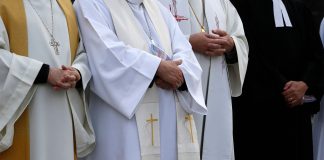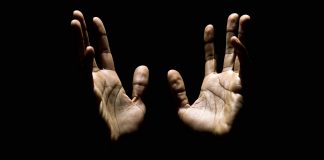How to change the world
There are days, maybe even years, that go by without us seriously questioning the meaning of our lives or whether anything we have left behind has made anybody's life better. We are afraid of an answer because it might require us to change. For John Wood, the answer came out of nowhere, in a school in the wilds of Nepal.
My mechanism of resilience
When I was four years old, my younger brother was born. My parents focused on my brother and spent less time with me. It was only 40 years later that I discovered how this had affected me.
Moesha Johnson’s Olympic miracle
In the choppy waters of Port Doha, Qatar, things weren’t looking good. Moesha was midway through a 10-kilometre open water race in the World Championships. This was her chance to qualify for the Olympics. But she was trailing behind a pack of thirty girls and had been for much of the race.
The Ecumenism Files Part I: From the Apostolic Church to the Great Schism
In the face of the hundreds of Christian confessions that exist today, the ecumenical efforts of the last decades have invariably raised some complementary and equally legitimate questions: Is Jesus' desire "that all of them may be one" (John 17:21) possible?
Is that you, God?
Christians believe that God speaks to people. But what does God sound like? Learning to recognise the difference between God’s voice and the myriad of other voices in your head takes much patience and practice. But it is possible!
COVID-19: What if we received bad news in a void?
What if there was no good news to give us confidence that we could get through the troubles facing us now? What if there was no good news to assure us that we are cherished, loved and supported, that we are not alone?
“The woman with the book” | The weakness that unleashes the power of God
God uses the traits we dislike as well as our weaknesses to create something great, beyond our abilities and imagination. This is the message that pervades the pages of "The Woman with the Book", the biography of the missionary Gladys Aylward.
Facing the person in the mirror
The great attraction of the virtual world comes from the fact that it gives its users the possibility of escape. Inside that world, they feel they can hide their identity and satisfy their every fantasy without suffering any consequences. Being able to hide one's identity offers a sense of freedom, which isn't a bad thing to want, after all. But is freedom of...
How does God answer prayers?
“I will stand at my watch and station myself on the ramparts; I will look to see what he will say to me” (Habakkuk 2:1).
The truth in the 20th century, or the certainty of uncertainty
In 1961, London witnessed the premiere of John Osborne’s play Luther. Osborne (1929–1994) did not aim to present an accurate historical portrayal of Martin Luther’s life. Instead, the play served as a platform to express the ideas that consumed the restless mind of Osborne.
“Do not keep on babbling” | Public prayer and its challenges
The way we pray in public reveals what our secret prayers are truly like. Beyond mere words, it is our attitude and motivation that give meaning and substance to prayer.
Thomas Helwys
“For men’s religion to God is between God and themselves. The king shall not answer for it. Neither may the king be judge between God and man. Let them be heretics, Turks, Jews, or whatsoever, it appertains not to the earthly power to punish them in the least measure. This is made evident to our lord the king by the scriptures.” These are...
What is stewardship?
The smell of burning food filled my tiny kitchen. “What's that smell?” I asked a friend who was sharing my house for the week. Every young man knows the smell, familiar from an early age—your first acquaintance comes from burnt toast and camping trips where, after burning everything you tried to cook, you end up eating your baked beans straight from the can.
Living Biblically?
Many Christians say they take the Bible literally. They regularly spend time reading this Book they believe to be inspired by God and seek to understand how to apply it to their lives.
When the face of the world changes | The epistemological significance of the Protestant Reformation
After Jesus was born—that is, in the era we call Anno Domini (AD)—the history of mankind was different from that of Christianity. As it is known, the latter was not the history of a triumphant march of Christianity towards its universalization and the unification of the human race. On the contrary, this history can rather be characterised as a manifestation of “the great...


























